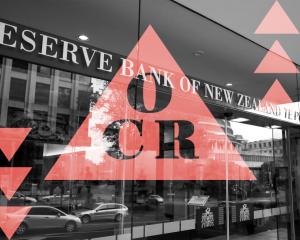Telecommunications company Spark is starting to feel the bite of competition but chief executive Simon Moutter remains confident the company can continue delivering to shareholders.
Spark's operating profit of $989million was 2.7% lower than the $1.02billion reported in the previous corresponding period.
Revenue grew 1% to $3.6billion and the reported profit fell nearly 8% to $385million from $418million.
Stripping out restructuring costs, earnings before interest, tax, depreciation and amortisation rose 2.2% to $1.04billion, in line with Forsyth Barr forecasts.
The dividend was unchanged at 25c per share.
Spark noted its Southern Cross dividends fell by $11million to $50million during the financial year.
Mr Moutter said dividends received from Southern Cross were expected to fall significantly during the 2019 financial year to between $10million and $20million as the level of pre-purchased capacity from large customers decreased.
The Southern Cross cable, which links New Zealand to Australia and the United States, is facing competition from Hawaiki Cable's new 15,000km fibre-optic cable, which is is the first high-speed connection for New Zealand not partially owned by Spark.
The cable is owned by telecommunications executive Remi Galasso and fellow investors CallPlus founder Malcolm Dick, Forsyth Barr chairman Sir Eion Edgar and Heartland Bank's largest shareholder, Greg Tomlinson.
Customers include Vodafone, Amazon Web Services and Crown-owned research network Reannz.
Spark has put a lot of faith in its new operating model, Agile.
''Agile focuses our business - everything we do and produce - around the customer.
''It paves the way for their needs, perceptions and feedback to have a greater influence on the way we conceive customer journeys, products and services than ever before,'' Mr Moutter said.
Under Agile, people worked in small squads focused on delivering a specific customer outcome.
Agile also encouraged deep engagement, better productivity and collaborative, positive behaviour. The model did not work any other way, he said.
The move had attracted a lot of interest from other companies, both in New Zealand and overseas, which were grappling with the same issues of uncertainty and technological disruption.
Spark was starting to reap the gains from the Quantum programme, which helped with cost reduction. The company had reduced its labour costs by $82million to $499million. It anticipated further gains, with a view to cutting its wage bill to $470million in the year to June 30, 2019.
The company used $73million of debt to reach its targeted dividend payments due to the cost of rolling out the Quantum programme but expected earnings growth to reduce the amount of any debt required to supplement dividends, he said.
Net debt grew to $1.2billion at balance date. Spark expected to make a five and a-half year retail bond offer next week. Westpac and ANZ Bank New Zealand had been appointed joint lead managers.
Mr Moutter said significant change had been a consistent fact of life at Spark in recent years.
During the year under review, Spark took change to a new level.
''We're proud of what we've achieved, firmly positioning ourselves for future success in an uncertain and fast-changing industry and world.''
The company was committed to being a key player in a rapidly evolving media environment.
During the financial year, it relaunched Lightbox on a new platform with several new features and services.
It also announced it had secured the rights to the 2019 Rugby World Cup, English Premier League football and other high-quality content.
Spark saw an opportunity for stand-alone financial returns in the sports media but it must also be disciplined when it came to making investments in that area, he said.
Spark shares yesterday closed at $3.95, down 3c.












